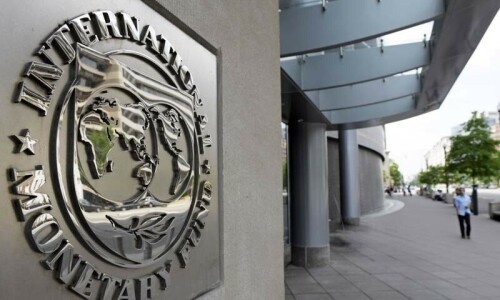BAGHDAD: Despite the absence of key leaders, heavy-handed security measures and resolutions seen as soft, the fact that Iraq managed to host an Arab summit at all has been hailed as a success.
Delayed by a year as a result of the Arab Spring uprisings and concerns over security in Baghdad, the two days of ministerial meetings followed by a summit at the former Republican Palace went off as scheduled, although a mortar attack pierced the security operation the day of the summit, but caused no casualties.
Iraq analyst Reidar Visser dubbed the summit, the first to be held in Baghdad in 22 years, a “landmark achievement”.
“The main achievement was simply holding the summit in a reasonably businesslike manner and attracting 10 heads of state, meaning the notion of Iraq's marginalisation in the Arab world is no longer true,” said Visser, editor of the Iraq-focused website www.historiae.org.
“Holding the summit also sent a signal that Iraq is not as fragile internally as some pundits claim.”
In all, 10 regional leaders including Iraq attended the summit out of the 22-member Arab League, while United Nations chief Ban Ki-moon also took part.
Syria, whose membership has been suspended, was not invited.
Iraq had said before the summit it expected around 10 heads of state to attend.
Notably absent, however, were the Gulf countries, apart from the emir of Kuwait who made the first visit to Iraq by a Kuwaiti head of state since Saddam Hussein's 1990 invasion.
The snub was seen as a sign of a split within the Arab League.
While hardliners Qatar and Saudi Arabia, which only sent their Arab League ambassadors to the summit, have called for Syrian President Bashar al-Assad to step down and for rebels opposing his regime to be supplied with weapons, others including Iraq have been pushing for reconciliation.Iraqi Foreign Minister Hoshyar Zebari told a post-summit news conference:
“We've achieved a good level of summit representation.”
He said the important thing was that all Arab League members except Syria were represented at some level.
“Certain Arab countries, notably in the Gulf, view Iraq with suspicion, especially because of the supposed influence of Iran,” said Iraqi political analyst Ihsan al-Shammari, referring to the absences.
Iraq's relations with Iran, with which it shares a Shia heritage, long border and extensive trade, are viewed with wariness by the mostly Sunni-led countries of the Arab League.
Baghdad launched an enormous security operation to prevent attacks during the meetings — 100,000 security forces were deployed, mobile networks were largely shut down and much of the capital was locked down.
And while a mortar round struck near the Iranian embassy, on the edge of the Green Zone where the summit was being held, it caused no casualties. A suicide attack on Tuesday, when economy and finance ministers were meeting, killed a policeman.
The security measures caused widespread frustration among Baghdad residents, with the city's already choking gridlock worsening considerably, and food prices rising as a result of increased transport costs.
Prime Minister Nuri al-Maliki apologised for the measures in a televised address on Friday.
“I want to thank Baghdad residents for what they put up with,” he said. “I apologise to them, and I also thank them because they participated in turning this summit into a success.”
He continued: “We had great results, the Arabs came back to Baghdad, and Baghdad has returned to the Arab world.”
Visser echoed those sentiments.
“In post-2003 perspective, the summit marks a historical improvement in relations between Iraq and the Arab world, and most particularly in Iraq's relationships with the non-GCC countries plus Kuwait,” he said, referring to the six-member Gulf Cooperation Council.
And as for criticism that the final resolutions passed did little to address the main concern of the meetings in Baghdad — the crisis in Syria, where monitors say a year-long revolt has left almost 10,000 people dead — Shammari said that meant little.
Arab leaders urged dialogue and an end to Syria's bloody crackdown, approving a resolution that called for the opposition to unite and for parties to the conflict to launch a “serious national dialogue”.—AFP









































Dear visitor, the comments section is undergoing an overhaul and will return soon.